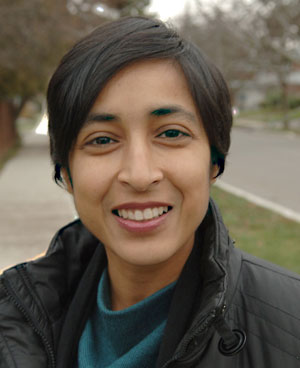Is there a future with automated lawyers?

Personally, I hope not. But I have heard many smart people say the future of law is in expert computer systems that may replace lawyers. The naysayers often claim that law is too complex and fact-specific for a computer to replace a lawyer. But there are several recent technical developments that indicate that this may be a possibility instead of science fiction.
Let me introduce you to Watson. The supercomputer and
Jeopardy champion was fed medical textbooks and journal articles. It was sequentially presented with the details of a fictitious patient and subsequently asked for more details. Eventually, it settled on a particular diagnosis with a high degree of accuracy. This has practical applications, and doctors at New York’s Memorial Sloan-Kettering Cancer Center, as reported in the
Atlantic, plan to make use of Watson to generate treatment recommendations. Watson will be sorting through their database of treatment and research history to help give doctors the best choices for a particular cancer diagnosis.
Computers are now moving into a realm thought to be too complex and too human. Another example involves California and Google. Gov. Jerry Brown signed a bill this year that will allow driverless cars on the state’s roads starting in 2015. What’s surprising is that driverless cars have already logged long distances on California roads.
How did we get here? Gordon Moore said in a 1965 paper that the number of transistors on integrated circuits doubles approximately every two years. Intel Corp. executives have stated that every 18 months, computing power doubles, which means your computer becomes twice as fast.
At the same time as computing power has increased, memory technology has also become less expensive. During an 18-month period, then, our computers get smaller and faster and can functionally do a lot more.
Computer programs must be specifically designed to take advantage of these advances. Not surprisingly, there will inevitably be a lag between increased computing power and the types of applications that are available on the market. What we’re starting to see now are applications that can take advantage of large amounts of data stored in memory and then process it very quickly in an intelligent way.
These expert applications are easier to create when you have a structured data input. From my experience as someone who develops software in the legal field, I believe there’s a large hurdle with respect to synthesizing the common law. For instance, there’s little to no consistency in the structure of judgments delivered by the courts unlike documents in other professional fields such as accounting or medicine.
But there are some recent developments in legal technology that are worth mentioning and include some of the ideas of Watson. IMPACT (Integrated Method for Policy Making Using Argument Modelling and Computer Assisted Text Analysis) is a project conducted in Germany under the auspices of the European Union that aims to develop automated processes to help facilitate deliberations on policy at a conceptual level. The goal of these processes is to create a system that automatically delivers pertinent information on proposed policies. As part of this project, the IMPACT team is seeking to develop processes that will simulate the legal effects of policy proposals in real and hypothetical cases by synthesizing existing online information from sources such as Facebook, Twitter, and blogs into a coherent set of legal arguments pertinent to the proposal. IMPACT is using existing tools such as the web ontology language and the legal knowledge interchange format to facilitate this goal.
Another interesting venture is an Internet startup in Los Angeles called myRight. Its mandate is to give people a free legal consultation without ever stepping into a lawyer’s office. Undoubtedly this is already happening. How many times does your client come to you with something they have read on the Internet? MyRight employs an easy-to-use interface that allows users to access the information they’re seeking quickly and effortlessly. Once they select the area of law they’re interested in, users are guided through a number of questions that help tailor the feedback they’ll receive based on their specific circumstances, including which jurisdiction their legal issue resides in, the type of problem they’re facing, and the specifics of it.
As an aside, in addition to providing legal information for the general public, myRight includes useful guides for startup businesses on topics like intellectual property and hiring procedures. The site also includes information about current legal debates like gay marriage and gun rights.
Finally there’s Practical Law Co., a site with checklists, timelines, and flowcharts that assists lawyers with many legal tasks. In essence, Watson becomes your legal assistant.
It seems unlikely these developments will seriously affect the profession of law, at least not immediately and certainly not to the extent where lawyers are no longer necessary, but myRight and Practical Law Co. are gradually taking us one step closer to a future Watson LLP.
Monica Goyal is a lawyer and technology entrepreneur. She’s founder of My Legal Briefcase and Simply Small Claims. You can follow her on twitter at @monicangoyal
.

 Personally, I hope not. But I have heard many smart people say the future of law is in expert computer systems that may replace lawyers. The naysayers often claim that law is too complex and fact-specific for a computer to replace a lawyer. But there are several recent technical developments that indicate that this may be a possibility instead of science fiction.
Personally, I hope not. But I have heard many smart people say the future of law is in expert computer systems that may replace lawyers. The naysayers often claim that law is too complex and fact-specific for a computer to replace a lawyer. But there are several recent technical developments that indicate that this may be a possibility instead of science fiction.